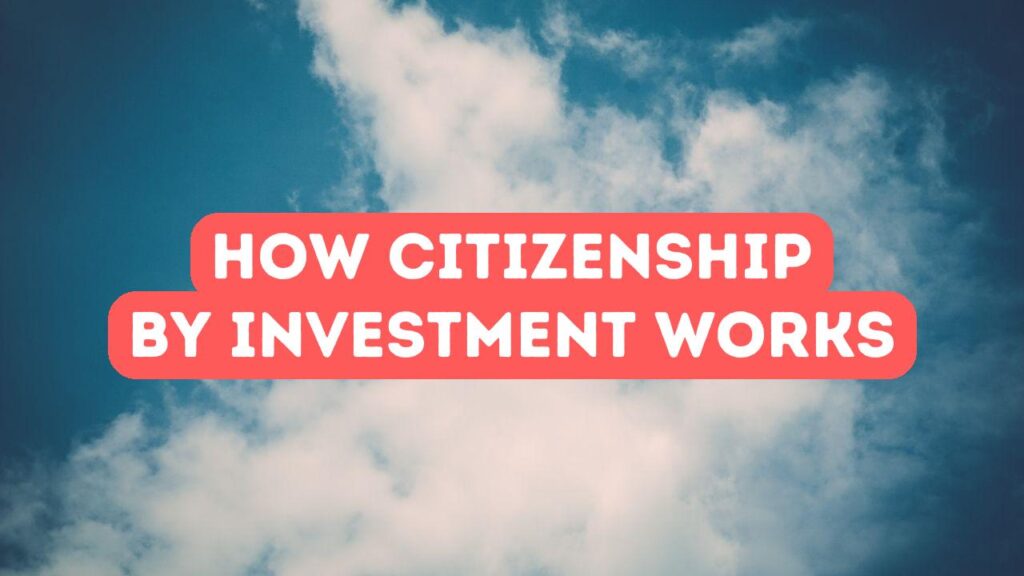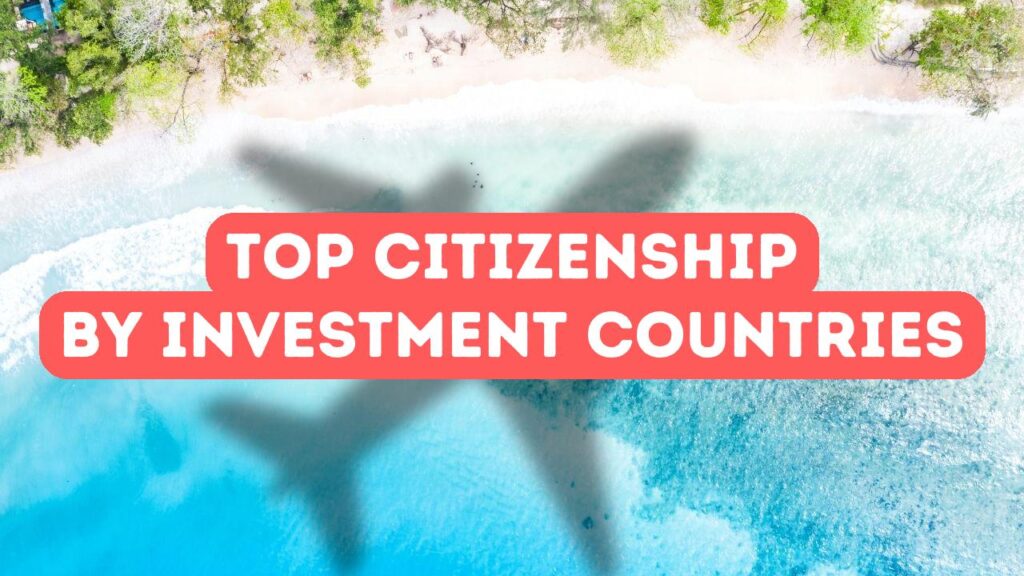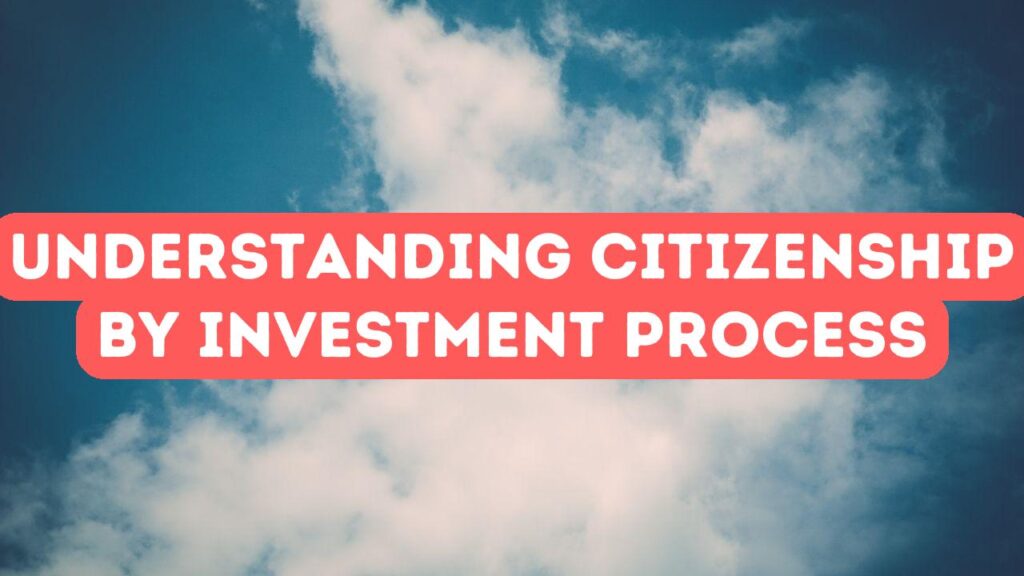In an increasingly interconnected world, the pursuit of global mobility has become a cornerstone for many high-net-worth individuals and families. Citizenship by Investment (CBI) programs provide a streamlined path to obtaining a second citizenship by making a substantial financial contribution to a host country’s economy. These programs, available in various jurisdictions worldwide, offer an array of benefits including visa-free travel, improved quality of life, and favorable tax regimes. By understanding how these programs operate, potential investors can make informed decisions that align with their personal and financial goals. In this blog post, we will explore the mechanics of CBI programs globally, delving into their requirements, processes, and the unique advantages they offer.
Understanding the Eligibility Requirements
Eligibility requirements for Citizenship by Investment programs can vary significantly from one country to another, but there are common elements that applicants can expect. Generally, these programs require a minimum age, often 18 years or older, and a clean criminal record. Applicants must also provide proof of substantial financial resources, which can include bank statements, tax returns, and audits of personal finances. In addition to financial criteria, due diligence checks are conducted to ensure that applicants do not pose any security risks or have a history of financial fraud or misconduct. Some nations may also require a health certificate to confirm that the applicant is in good health. Understanding these prerequisites is crucial for any individual considering a CBI program, as meeting these criteria is the first step toward securing a second citizenship.
Moreover, the financial contributions required for Citizenship by Investment programs differ across jurisdictions, ranging from direct donations to government funds to real estate investments and business ventures. For instance, some countries may stipulate a non-refundable donation to a national development fund, while others might require an investment in pre-approved real estate projects or shareholding in local businesses. The minimum investment amounts can vary widely, typically starting from several hundred thousand dollars upwards, depending on the country and the type of investment. Applicants might also need to commit to holding the investment for a specified period, ensuring their long-term contribution to the national economy. By carefully reviewing these financial commitments, investors can choose a program that best aligns with their investment capabilities and strategic goals.
In addition to financial and personal eligibility requirements, some Citizenship by Investment programs impose residency stipulations. These may mandate that applicants spend a certain number of days within the host country either before or after the citizenship is granted. The residency requirement can vary from no physical presence at all to several months or even years. Such stipulations ensure that the investor maintains a genuine connection with the host nation. Additionally, applicants should be aware of any language proficiency requirements that some countries might have as part of their integration policies. Navigating these residency and additional requirements can be complex, but with thorough research and professional guidance, potential investors can find programs that not only meet their needs but also offer a seamless path to obtaining dual citizenship.
The Application Process Explained
The application process for Citizenship by Investment programs typically begins with selecting a qualifying investment option, which can range from real estate purchases to contributions to national development funds. Once the investment option is chosen, applicants must gather and submit a comprehensive dossier of documents, including proof of source of funds, a clean criminal record, and health check clearances, to the designated government agency or authorized service provider. During the vetting stage, due diligence assessments are conducted to verify the applicant’s background and the legitimacy of the investment funds. The entire process, from initial application submission to citizenship approval, can take several months, depending on the specific program and the complexity of the applicant’s profile.
Once the application is submitted, it undergoes a thorough review by the host country’s designated authorities. This review process includes multiple layers of scrutiny, where government officials or authorized agencies meticulously assess the validity of the provided documentation and verify compliance with the program’s specific requirements. In many cases, external due diligence firms are engaged to perform an independent background check to ensure that applicants do not pose any potential risks to the host country. This phase is crucial as it determines the eligibility of the applicant for citizenship. Upon successful review and approval, the applicant is usually required to fulfill the financial commitment, formalize the investment, and take an oath of allegiance if necessary, finalizing their journey towards obtaining a second citizenship.
After the successful completion of the due diligence process and formalization of the investment, the final steps involve the issuance of citizenship certificates and passports by the host country. These documents grant the new citizens the full rights and privileges associated with their new nationality, including travel benefits, access to advanced healthcare systems, quality education, and favorable business opportunities. Many countries also provide options for including family members in the application, allowing the main applicant’s spouse and dependent children to enjoy the same benefits. It is essential for newly minted citizens to remain compliant with any ongoing requirements stipulated by the CBI program, such as maintaining the investment for a certain period or adhering to legal residency obligations. By following these steps, investors can successfully navigate the intricate pathways of Citizenship by Investment programs and attain the numerous advantages of holding a second citizenship.
Benefits and Challenges of Citizenship by Investment
One of the most compelling benefits of Citizenship by Investment (CBI) programs is the unparalleled freedom of movement they offer. With a second passport from a country that has favorable visa arrangements, investors can gain access to a multitude of countries without the hassle of obtaining visas for each trip. This increased mobility is particularly advantageous for business professionals who need to travel frequently, as well as for families seeking educational and cultural opportunities across the globe. Additionally, many CBI programs provide access to world-class healthcare and education systems, enhancing the overall quality of life. However, it’s essential to navigate these opportunities with a clear understanding of the potential challenges, such as varying investment thresholds, differing processing times, and the need to meet specific regulatory requirements, which can be complex and time-consuming.
Another significant benefit of CBI programs is the favorable tax regimes that many host countries offer. Investors can take advantage of lower income taxes, capital gains taxes, and inheritance taxes, providing a more conducive environment for wealth preservation and growth. Moreover, some jurisdictions do not impose a global income tax, allowing for more efficient financial planning and management. This can result in substantial financial savings and improved capital management for individuals and families with substantial assets. However, it is crucial for investors to consult with tax advisors to navigate the complexities of international tax laws and ensure compliance with both their home and host countries’ regulations. This proactive approach can mitigate potential risks and optimize the benefits of their new citizenship status.
Despite the numerous advantages, Citizenship by Investment (CBI) programs also come with a set of challenges that prospective investors must consider. One of the primary concerns is the significant financial commitment required, which can range from hundreds of thousands to several million dollars depending on the country and the investment route chosen. Additionally, investors must be aware of the due diligence processes that host countries undertake, which can be rigorous and time-consuming. These background checks are essential for maintaining the integrity of the CBI programs, but they add another layer of complexity to the application process. Furthermore, changes in political climates and international relations can impact the stability and benefits of CBI programs, making it vital for investors to stay informed and adaptable. By weighing these challenges against the potential rewards, investors can make better-informed decisions about pursuing citizenship by investment.







